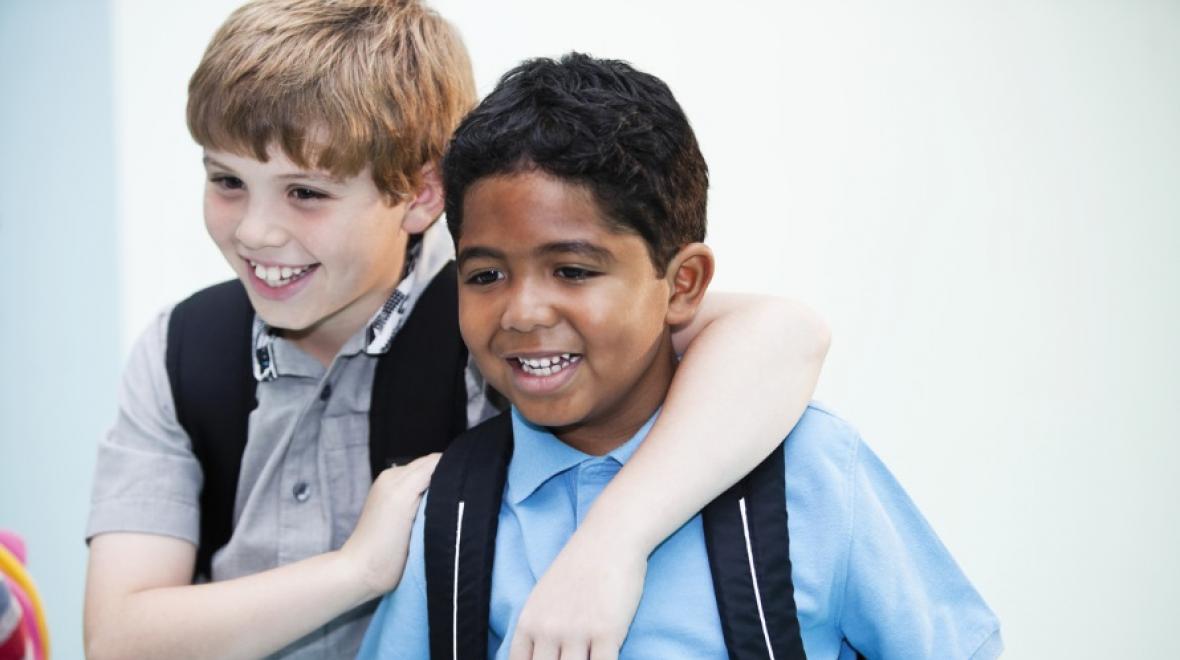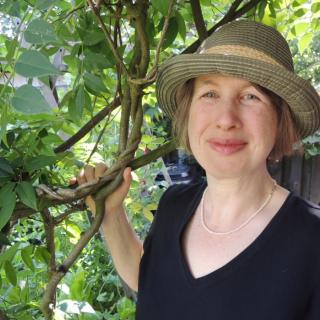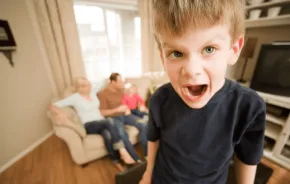
The school auditorium was packed with parents on my son’s last day of fifth grade, all of us beaming at the sight of our children onstage for the promotion ceremony.
One by one, each student rose to receive a certificate and a hug from their teachers. The principal smiled warmly, recounting the joys of working with this particular class; their curiosity, empathy, thoughtfulness.
“Be proud of them,” she told us.
Sitting there, listening to our children sing “Free to Be You and Me” and “Circle Game” (it’s a groovy place, for a public school) I was proud. But not only of my tall boy, in his button-down shirt and carefully combed hair. I was proud of myself — and conscious, too, of an overwhelming sense of relief. I had given my son six years of elementary school radically different, and immeasurably better, than my own.
As a child, I attended a private school whose philosophy dictated that the same teacher remain with a class from first grade through eighth. For my siblings, whose teachers were gifted and kind, this was a benefit, allowing them to spend eight years with the same trusted, nurturing adult.
But, my teacher was different. Yelling, intimidation and threats were a daily practice with her. She humiliated students regularly, as on the morning she forced my fourth grade best friend to stand in front of the class, hectoring her to tears over a multiplication problem. Still vivid is my teacher’s furious tirade against another girl, who had dared use purple in a drawing of the sky. Didn’t we all know, she raged, that the sky was blue?
There was not a morning during those years when I didn’t dread going to school.
Though my classmates and I were generally well-behaved, our infractions regularly unleashed a fury so disproportionate that it left me shaking, first with fear, and later, as I grew older, with anger of my own.
There was not a morning during those years when I didn’t dread going to school. I remember steeling myself as I walked down the hall to my classroom, trying to summon the mental strength to resist whatever might happen that day. I now know that kind of bullying has lasting effects.
Research has shown that children under stress suffer from over-activated amygdalas, the portion of the brain that responds to anxiety and fear, and as a result, have difficulty processing new information. Another study found that the student-teacher relationship is correlated with academic outcomes; students who feel validated and supported will do better academically than those who feel insecure or unsafe in the classroom.
Kids like me, who hate school, or are afraid there, simply don’t learn well. By eighth grade, my last year with that teacher, I had hated school for years, and my academic record was correspondingly mediocre.
Reading saved me, the novels I loved allowing me to escape from the stress and enter worlds like Narnia and Prydain, where evil was satisfyingly vanquished. I’ll always be grateful for the respite books provided when I needed it.
But I didn’t want my own children to think of school as a place to escape. For them, I was determined, education would be different. But how could I ensure that? Even had finances permitted, I was under no illusions about the superiority of private school; and anyway, we were a family on a budget. Our kids would be attending the public school down the street.
When my son began kindergarten there, I listened carefully to him on the walk home each day, mindful that my own parents had dismissed complaints about my teacher as typical kid griping. But he loved Miss Trinh, a genuinely kind and thoughtful young woman who planned fairy tea parties for her students and stressed empathy and cooperation along with the ABCs.
To my relief and delight, my son’s teachers during the following years proved equally excellent. No one shamed him for not reading fluently by second grade (“He’ll read when he’s ready,” one reassured me, and she was right.)
No one yelled at him for drawing with the wrong color, or failing to understand something. Instead, along with the academics, these adults actively modeled kindness, respect and inclusion.
My son may have grumbled about leaving his warm bed on winter mornings, but over those six years, I never heard him utter the words “I hate school.”
Is there a term—maybe a complex German word—for the emotion experienced by a parent who succeeds in protecting her child from a trauma she herself endured?
If there is, that’s what I was feeling in the auditorium that June day, watching my son pass his first significant educational milestone, his face reflecting nothing more than simple happiness and pride.
The next three years would undoubtedly hold some degree of angst. (No one escapes middle school entirely unscathed.) For now, though, I would savor my own pride and pleasure, along with a deep thankfulness for the men and women who had taught him with sensitivity, humor and love.
I’ll never forget the daily fear and stress of my own school days, but watching my son, I felt some of the burden of those finally memories slip away.











